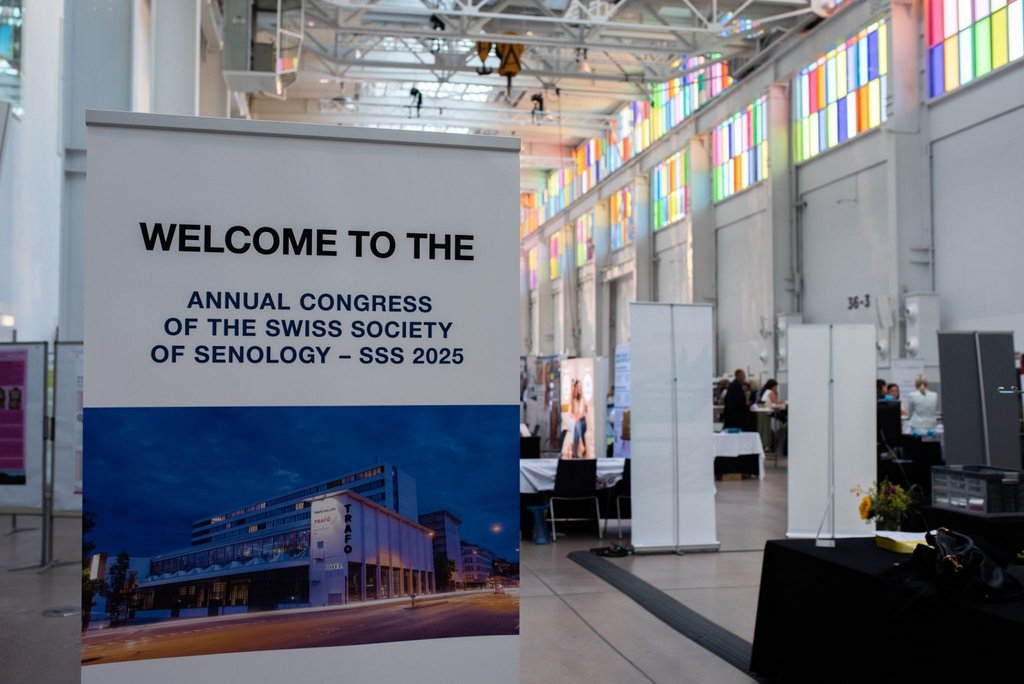- 06.10.2025 - 15:27
Poster awarded at the Swiss Senology Congress on the ability of AI in breast cancer diagnostics
On September 18, 2025, the chair of Health Economics, Policy and Management was again attending the Swiss Senology Congress, which this year took place at the Trafo Baden, in the former Transformer premises of Brown, Boveri & Cie. At the well-attended and interesting congress, a poster was presented on the capabilities of artificial intelligence (AI) in breast cancer diagnostics as part of an early detection program, which originated from the collaboration with the Cancer League of Eastern Switzerland. The poster attracted considerable interest at the Senology Congress and was awarded the prize for the best poster.
The study retrospectively evaluated mammographies from the “donna” breast cancer screening program using an AI algorithm (ProFound AI®). Specifically, 71 mammograms were evaluated that were taken two to three years before a breast cancer diagnosis. Radiologists found no evidence of breast cancer in these mammographies taken between 2019 and 2021, but breast cancer was diagnosed during the subsequent screening in 2022 and 2023.
For each mammography, the AI algorithm yielded a case score (indication of breast cancer) and a risk score (probability of breast cancer developing within two years).
Key findings:
The results show that the use of AI could help to detect potentially missed cancers earlier and support a personalized, risk-based screening strategy. This could lead to earlier diagnosis of breast cancer in an earlier, less aggressive tumor stage, improving the quality of life for affected women.
The research team from the chair and the Cancer League of Eastern Switzerland also emphasizes that future research on the integration of AI into breast screening programs should also consider interactions between radiologists and AI, as well as genetic risk factors. Further evaluations of the potential use of AI in the “donna” breast cancer screening program are already underway.
